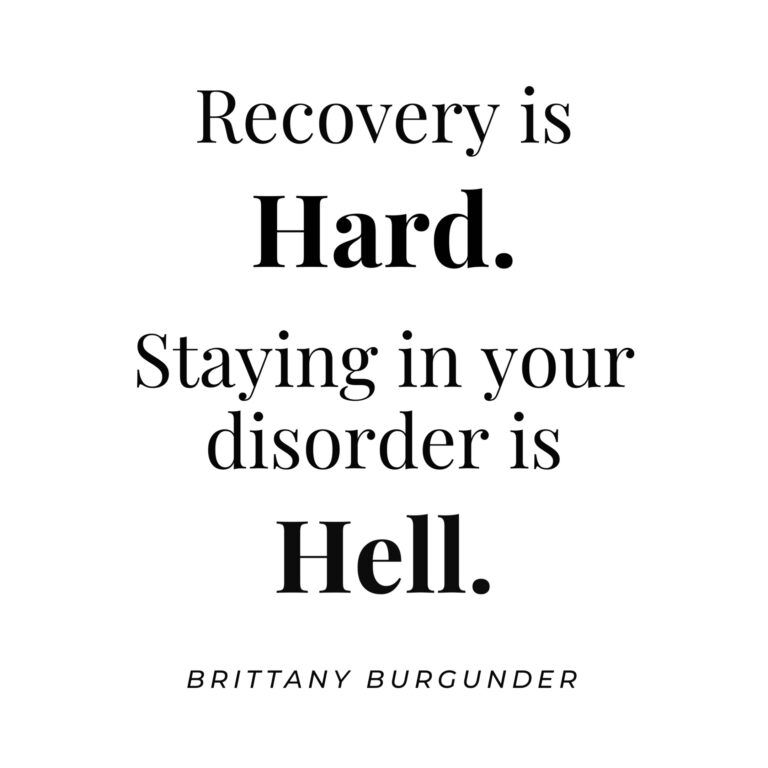
RECOVERY IS HARD
⋅
?The difficulty with eating disorder recovery is that it will feel awful both to get well, and to stay sick. The question comes down to which is just a little bit less horrible. To complicate things further, your judgment will be compromised by your eating disorder manipulating your vision. You know how you can receive 99 compliments, but only remember the one critic? Well, eating disorders have a knack for doing that also —except the opposite. It will gloss over the 99 negatives and magnify the one positive.
⋅
When you’ve lived with an eating disorder long enough, it can be hard to distinguish your voice and self as separate from your disorder. How will you know who and what to trust? If recovery feels so uncomfortable, and your eating disorder constantly interrupts to remind you it can make you happy —how do you make the right choice?
⋅
This is something I personally wrestled with for many years. My eating disorder was exceptionally loud and persuasive. And it was not just persuasive —it was clever. My eating disorder did not just glorify the good memories, it also made sure I remembered I did not deserve to get better or be happy. Twisted right? An eating disorder promises you happiness while simultaneously reminding you that you deserve the hell it creates.
⋅
I don’t have a magic wand to make the choice to recover any easier for you. But I can tell you that I have lived through both options. In fact, my skepticism about recovery led me to exhaust the pros and cons of each choice to the point where my ambivalence became its own hinderance. But the choice to recover was the one that fulfilled the happiness I sought.
⋅
Recovery felt worse at first, and my disorder felt better. It was only in hindsight that I could clearly see the hell of my disorder, and this is because I stayed in recovery. ~Britt?